If you’ve been a part of the RV lifestyle for any amount of time, you’ve undoubtedly noticed the heavy use of abbreviations.
This guide will help you understand the meaning behind the most common RV abbreviations and their definitions.
RV Abbreviations Guide
| Abbreviation | Meaning | Definition |
|---|---|---|
| BLM | Bureau of Land Management | A federal agency within the United States Department of the Interior, responsible for managing public lands, including designated areas where RVers can camp for free or at a low cost, often referred to as boondocking or dispersed camping. |
| BTU | British Thermal Unit | A unit of measurement for heat energy often used to describe the heating or cooling capacity of RV furnaces, water heaters, and air conditioning systems. |
| CCC | Cargo Carrying Capacity | The maximum weight of personal belongings, equipment, and additional cargo that can be safely loaded into an RV, as determined by the manufacturer, calculated by subtracting the Gross Vehicle Weight Rating (GVWR) from the RV’s unloaded vehicle weight. |
| COE | Army Corps of Engineers | A federal agency within the United States Department of Defense, responsible for managing public lands and water resources, including campgrounds and recreational areas with RV facilities. |
| DSI | Direct Spark Ignition | A method of igniting the burners in RV appliances, such as water heaters, furnaces, or refrigerators, using an electronic spark to ignite the fuel, typically propane, eliminating the need for a pilot light. |
| FHU | Full Hookup | A campsite or RV park offering connections to all essential utilities, including electricity, water, and sewer. |
| FMCA | Family Motor Coach Association | A membership-based organization for motorhome owners, providing benefits such as technical advice, roadside assistance, discounts on campgrounds, RV tire services, and insurance. |
| GAWR | Gross Axle Weight Rating | The maximum weight that can be safely supported by a single axle on an RV or tow vehicle, including the weight of the vehicle itself, cargo, fluids, and passengers. |
| GCWR | Gross Combination Weight Rating | The maximum allowable combined weight of an RV or trailer and its tow vehicle, including passengers, cargo, and fluids, as determined by the manufacturer. Exceeding this weight can compromise safety and performance. |
| GTWR | Gross Trailer Weight Rating | The maximum weight that a specific trailer or towable RV can safely carry, as determined by the manufacturer. The GTWR includes the weight of the trailer itself, as well as any cargo, fluids, and passengers. |
| GVWR | Gross Vehicle Weight Rating | The maximum weight an RV or tow vehicle can safely carry, including the vehicle itself, passengers, cargo, and fluids, as determined by the manufacturer. |
| KOA | Kampgrounds of America | A chain of privately-owned campgrounds across the United States and Canada, offering RV sites with various amenities and services, such as full hookups, WiFi, and recreational activities. |
| LP | Liquified Petroleum Gas | A type of fuel commonly used in RV appliances, such as stoves, ovens, water heaters, and furnaces. It is stored in a liquid state under pressure and vaporizes upon release for use. |
| MH | Motorhome | A self-propelled recreational vehicle that combines living accommodations and vehicle chassis into a single unit, available in different classes (A, B, and C) based on size, features, and chassis type. |
| NCC | Net Carrying Capacity | The maximum weight of personal belongings, equipment, and additional cargo that can be safely loaded into an RV, similar to Cargo Carrying Capacity (CCC). However, NCC is an older term and may not account for the weight of some factory-installed options, making CCC the preferred and more accurate term. |
| NPS | National Park Service | A federal agency within the United States Department of the Interior, responsible for managing and protecting the country’s national parks, which often provide camping and recreational opportunities for RVers, although with varying levels of facilities and size restrictions. |
| NRA | U.S. National Recreation Areas | Federally designated areas in the United States, managed by various government agencies, such as the National Park Service and the U.S. Forest Service, offering recreational opportunities for RVers, including camping, hiking, and other outdoor activities, with varying levels of facilities and size restrictions. |
| NWR | U.S. National Wildlife Refuge System | A network of federally protected lands and waters in the United States, managed by the U.S. Fish and Wildlife Service, dedicated to conserving wildlife and their habitats. Some refuges allow RV camping, offering opportunities for wildlife watching, photography, and other nature-based activities. |
| O/N | Overnight Parking | The practice of parking an RV in a location, such as a rest area, truck stop, or retail parking lot, for a short period of time, typically one night, to sleep or rest without setting up a full campsite. Some locations may have restrictions on overnight parking or require permission from the property owner. |
| OEM | Original Equipment Manufacturer | A company that produces components or parts used in the assembly of an RV, such as appliances, chassis, or furniture. OEM parts are often recommended for repairs or upgrades, as they are designed to meet the specific requirements and specifications of the RV manufacturer. |
| PDI | Pre-delivery inspection | A thorough inspection and testing of a new or used RV, performed by the dealer or buyer before finalizing the purchase to ensure that all systems, components, and features are functioning properly and meet the buyer’s expectations. A PDI may include checking for leaks, testing appliances, and electrical systems, and verifying the condition of the RV’s interior and exterior. |
| RV | Recreational Vehicle | A motorized or towable vehicle designed to provide temporary living accommodations for travel, camping, or recreational use, including motorhomes, travel trailers, fifth-wheel trailers, pop-up campers, and truck campers. RVs typically include sleeping areas, a kitchen, a bathroom, and various amenities for comfort and convenience. See What Does RV Stand For? for more information. |
| RVDA | Recreational Vehicle Dealer’s Association | A trade organization representing the interests of RV dealers in the United States and Canada, promoting professionalism, industry standards, and educational opportunities for its members, and advocating for policies and legislation that benefit RV dealers and consumers. |
| RVIA | Recreational Vehicle Industry Association | An organization representing the interests of RV manufacturers and suppliers in the United States, promoting industry standards, safety, and consumer satisfaction, advocating for policies and legislation that benefit the RV industry, and more. |
| SRA | State Recreational Area | State-managed parks or protected areas offering various recreational opportunities, such as camping, hiking, fishing, and boating, often with RV-friendly campsites and facilities, though the size restrictions and available amenities may vary depending on the location. |
| SWA | State Wildlife Areas | State-managed lands dedicated to conserving and protecting wildlife and their habitats, often providing opportunities for wildlife watching, hunting, fishing, and other nature-based activities. Some state wildlife areas may offer RV camping, with varying levels of facilities and size restrictions. |
| TC | Truck Camper | A type of RV designed to be mounted on the bed of a pickup truck, providing compact living accommodations, including sleeping, cooking, and sometimes bathroom facilities. |
| TH | Toy Hauler | A type of towable RV, such as a travel trailer or fifth-wheel trailer, featuring a built-in garage or storage area, typically accessed through a large rear door that doubles as a ramp, designed to transport motorcycles, ATVs, or other recreational vehicles. |
| TT | Travel Trailer | A towable RV designed to be hitched to a tow vehicle via a bumper or frame hitch, available in various sizes and configurations, providing living accommodations, including sleeping areas, a kitchen, and a bathroom, with a range of amenities depending on the model. |
| TV | Tow Vehicle | A vehicle, such as a pickup truck, SUV, or van, used to tow a towable RV, such as a travel trailer or fifth-wheel trailer, equipped with a suitable hitch and the necessary towing capacity to safely handle the weight and size of the RV. |
| UVW | Unloaded Vehicle Weight | The weight of an RV as it leaves the factory with a full fuel tank and equipment fluids. It does not include cargo, passengers, or water. The UVW is used to calculate the cargo carrying capacity and to determine if a tow vehicle has the necessary towing capacity. |
| W/E | Water and Electric | Campsites at RV parks or campgrounds that offer connections to water and electric utilities but no sewer hookups. These sites allow RVers to use their onboard fresh water and electric systems, but they must rely on their holding tanks for wastewater storage and later use a dump station to empty their tanks. |
| W/E/S | Water, Electric, Sewer | Campsites at RV parks or campgrounds that offer connections to all essential utilities, including water, electric, and sewer, allowing RVers to use all their onboard systems without relying on self-contained resources, often referred to as “full hookup” campsites. |
Be sure to check out our RV Terms and Definitions and RV Slang Terms guides for more commonly used vocabulary and their meanings.
Printable RV Terms & Definitions Guide (With Abbreviations & Slang)

This comprehensive, 17-page printable guide contains over 150 essential terms, abbreviations, and slang phrases used in the RV world. Easily print off the guide, store it in your RV, and have the most common terms at your fingertips when you need them. Or view the PDF download on your PC or mobile device – even without an internet connection!
Are there any abbreviations we missed? Add them in the comments below.

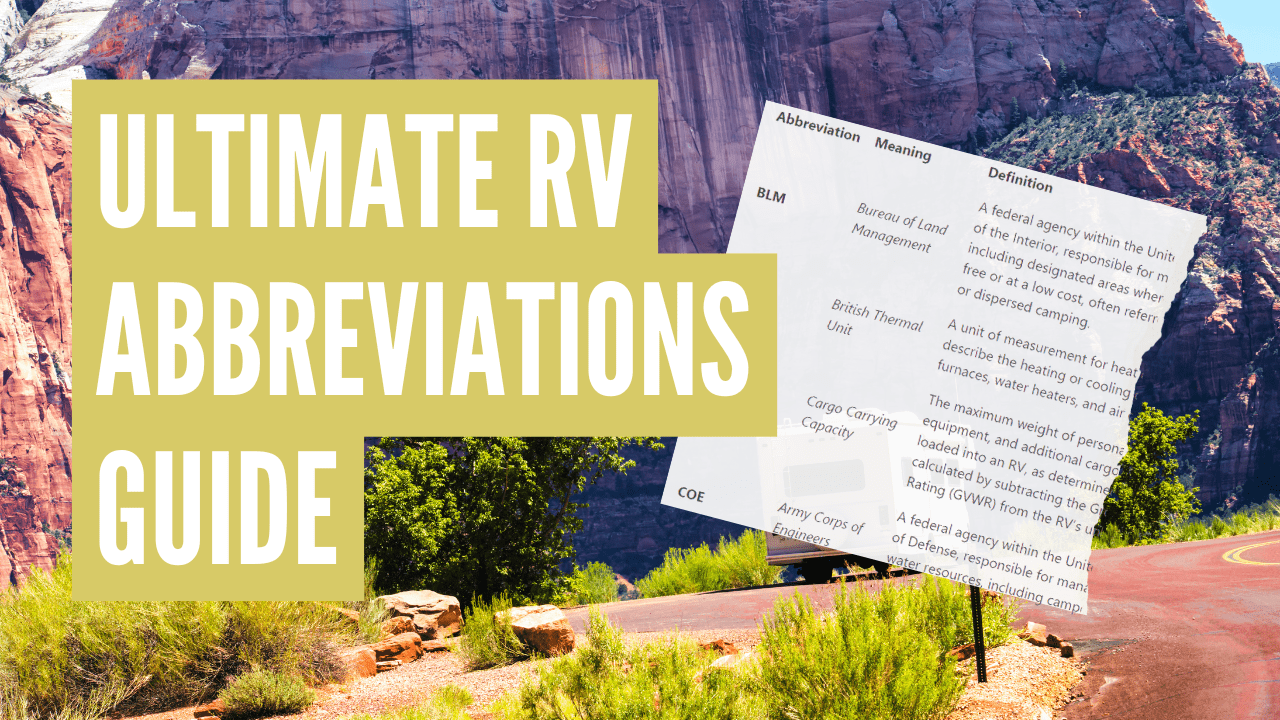
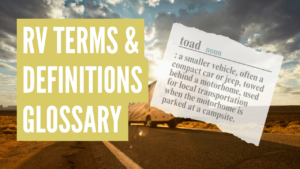
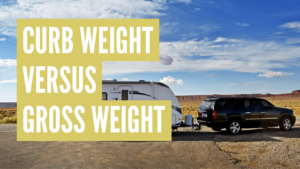


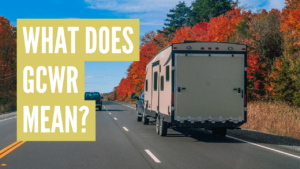
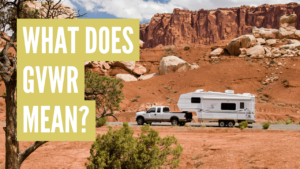
Write a comment